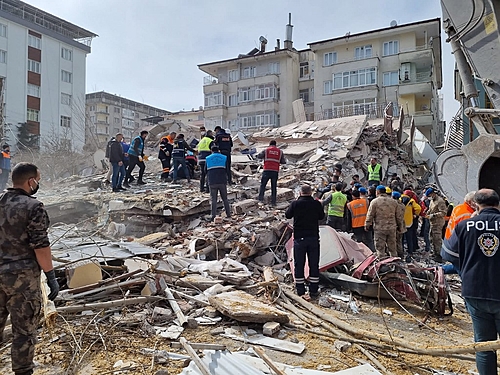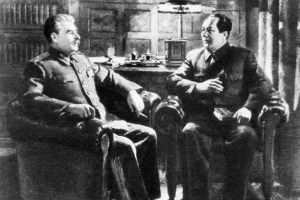
A new earthquake struck southeastern Turkey on Monday (27), killing one person and injuring 69, in addition to collapsing 29 buildings, the country’s authorities said.
The most recent aftershock of recent days had a magnitude of 5.6 and occurred at a depth of 6.25 kilometers, three weeks after the devastating earthquake that killed more than 50,000 people in Turkey and Syria.
Since the first earthquake, there have been 45 aftershocks with magnitudes between 5 and 6, said the director general of Turkey’s Disaster and Emergency Management Authority (AFAD), Orhan Tatar. “It’s an extraordinary activity,” he said.
Turkey is just a few months away from presidential and legislative elections, scheduled for June. The election is expected to represent the biggest challenge ever faced by President Recep Tayyip Erdogan, two decades after taking power in the country.
He has been criticized for his mismanagement of the catastrophe and delays in sending aid to the affected regions. There are fears that the Turkish leader will use the earthquake as a reason to postpone elections.
A delegation from the country’s High Electoral Commission will visit earthquake-hit areas to assess the possibility of voting taking place in those regions.
On Monday, on a visit to Adiyaman, one of the areas hardest hit by the earthquakes, Erdogan apologized for the delay in rescue operations. In the 2018 elections, he had already struggled to win the votes of local voters, narrowly beating his rival in the region.
“No government, no police, no soldiers”
“Due to the devastating effect of the tremors and bad weather, we were not able to work the way we wanted in Adiyaman in the first few days. I apologize for that,” said the president.
“I didn’t see anyone here until 2 am the day after the earthquake,” a local resident told the AFP news agency. “No government, no state, no police, no soldiers. Shame on you! You have left us to our own devices,” he complained, addressing the president.
Before the country was hit by catastrophe, Erdogan’s campaign was gaining momentum. His approval was on the rise after a low period amid the economic crisis that erupted in the country last year.
The longest-serving leader of modern Turkey is blamed by the opposition for out-of-control inflation and allowing contractors to circumvent building regulations that could have saved lives.
His party, the AKP, came to power in 2002 amid a financial crisis and after the collapse of the ruling coalition, which – like Erdogan himself now – was heavily criticized for its handling of a devastating earthquake in 1999. .
The 68-year-old political veteran, who has accumulated more than a dozen electoral successes, has been visiting cities hit by the tremors and promising a quick reconstruction, as well as punishment for contractors. Authorities arrested 184 people for complicity in the collapse of buildings. Investigations are still ongoing.
More than 50 thousand dead
That, however, may not be enough to convince angry voters who lost their homes in the 7.8 magnitude quake and who accuse him of being slow to act.
On Sunday, AFAD reported that the death toll from the earthquakes in Turkey was 44,374. Added to the deaths recorded in Syria, the total number of victims is more than 50,000.
More than 160,000 buildings with 520,000 apartments collapsed or were seriously damaged in the biggest catastrophe in the country’s modern history.
Source: www.brasildefato.com.br

